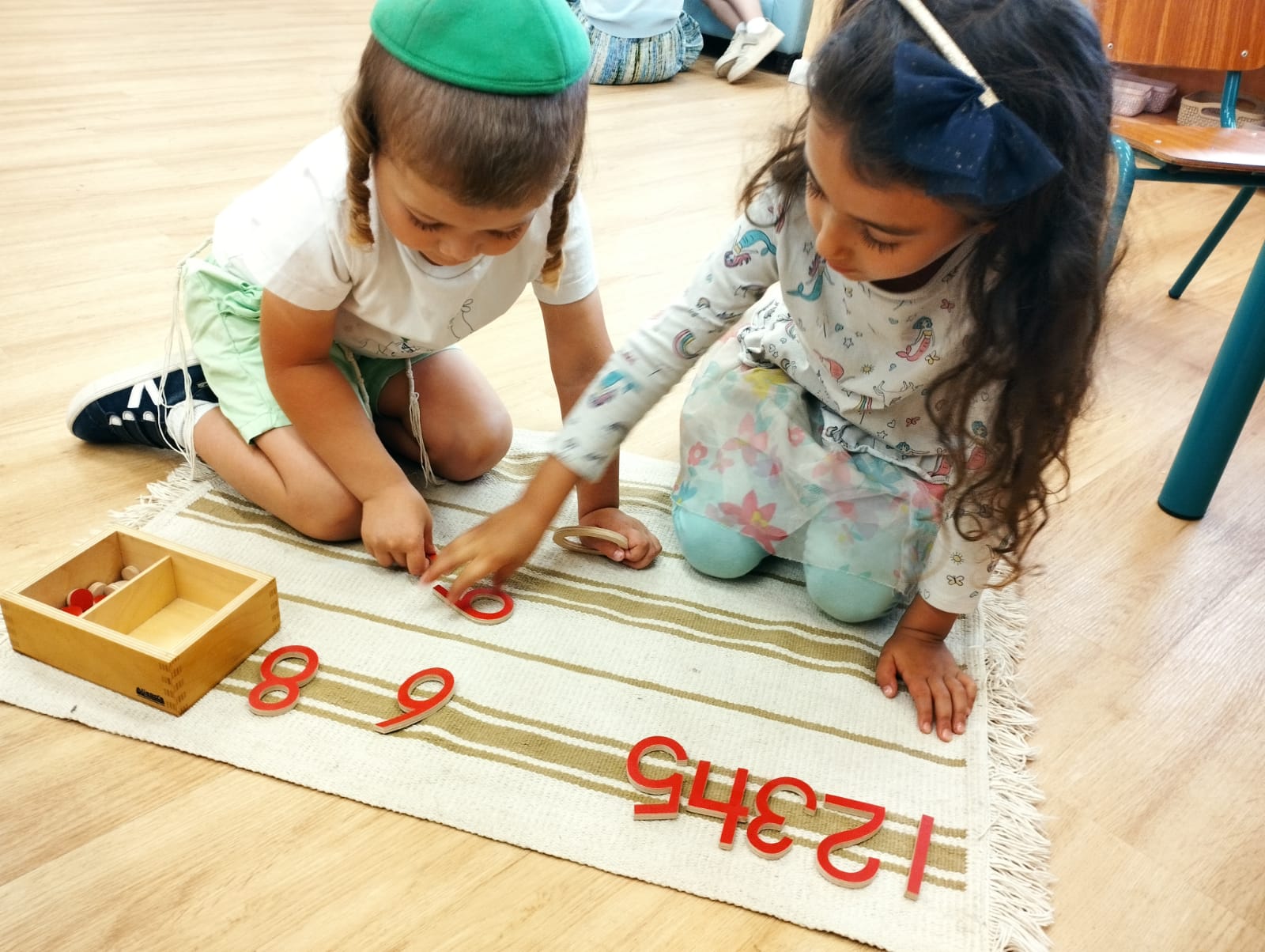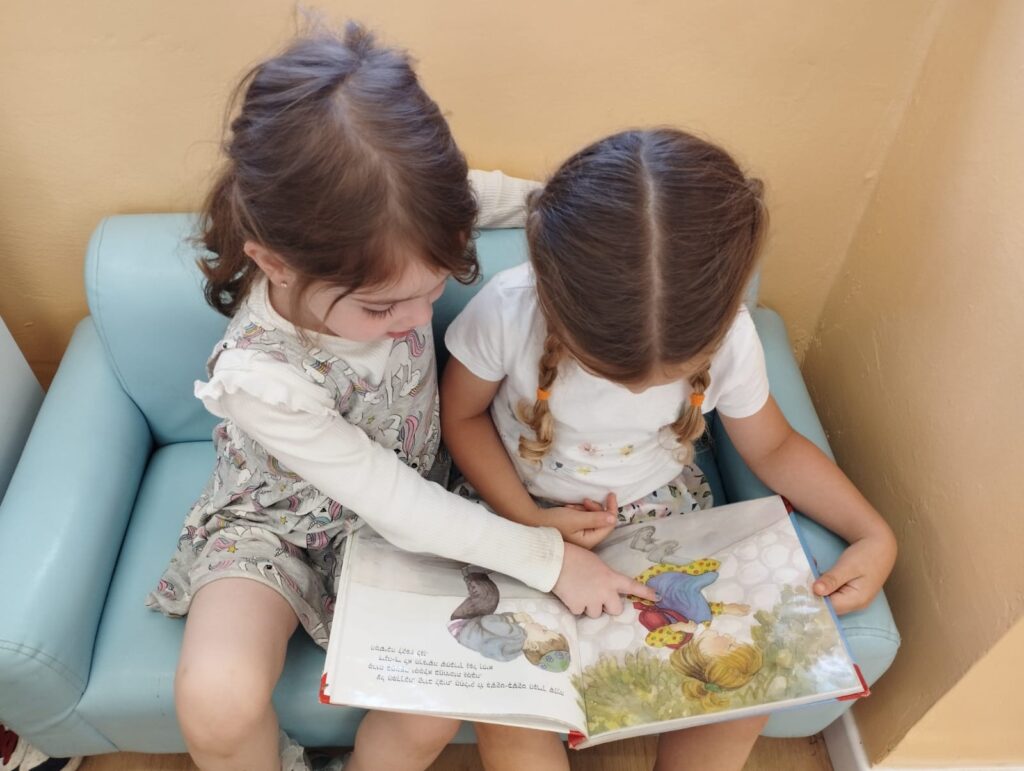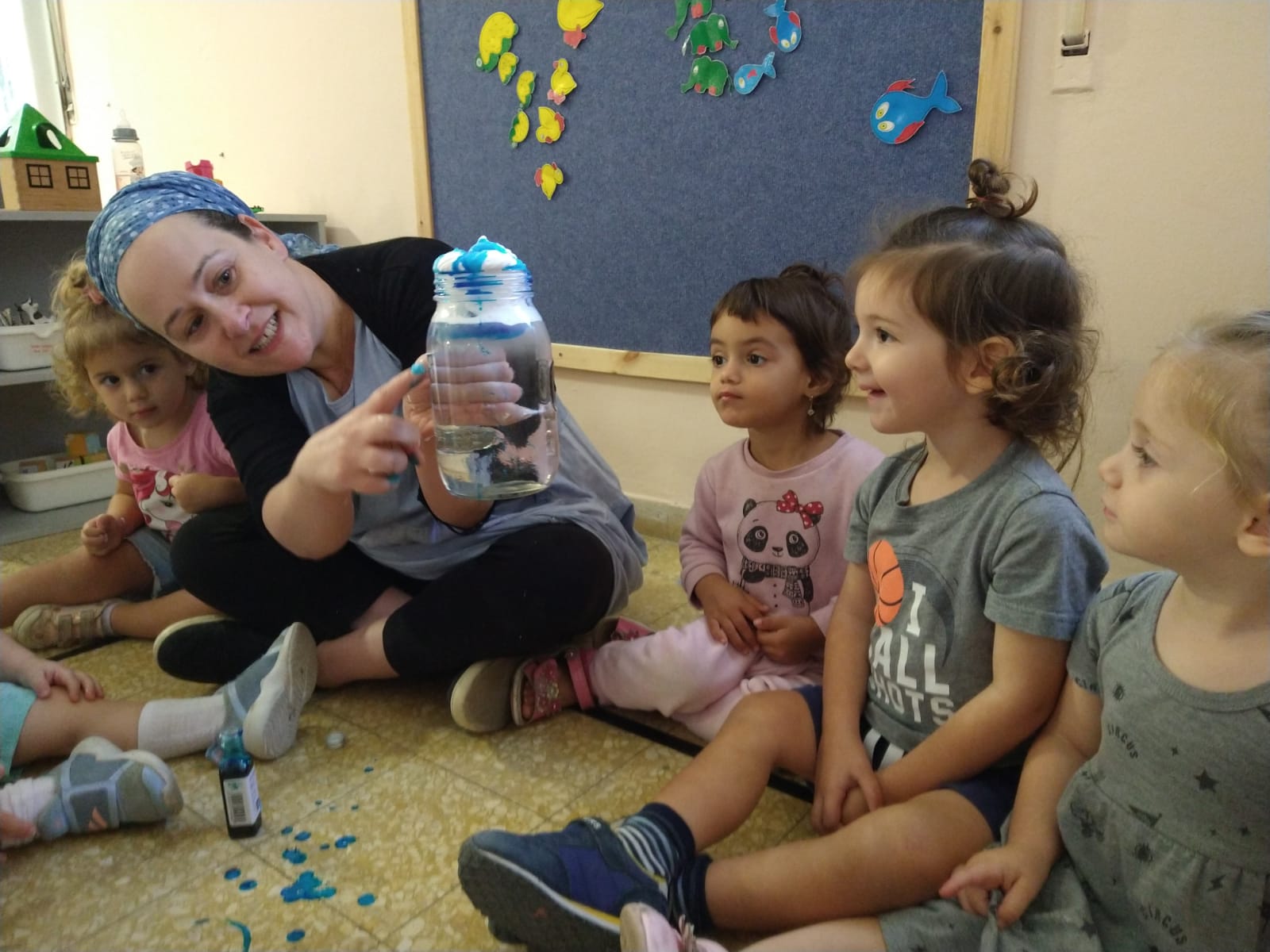
We believe that when children are given the freedom to choose what they want to learn and explore, and do so at their own pace, they become more engaged in their own education. This approach encourages children to develop their own interests and passions, which in turn increases their motivation to learn and explore.

We strive to foster an environment of mutual respect between adults and children, recognizing that each child is an individual with unique needs, interests, and abilities. By providing a supportive and respectful environment, we enable our students to build confidence and take ownership of their own learning, helping them to reach their full potentia.

Our Montessori program is also designed for children coming from homes with both Hebrew and English speakers. Our dual-language program helps these children develop tools to thrive in both languages, providing them with a broad linguistic foundation.

Montessori education is a really amazing approach to learning that puts children at the heart of everything they do. In a Montessori classroom, you’ll find a calm and focused atmosphere that helps children to explore and learn in their own way. The materials are there to encourage independence and curiosity, and the furniture is specially chosen to help children feel comfortable and at ease.
One of the defining features of the Montessori classroom is the use of “works,” or materials that children can use to explore and learn at their own pace. These works are carefully selected to help children develop specific skills, such as fine motor control, logical thinking, and sensory awareness. Materials might include items like blocks, beads, or cards that can be used for sorting, counting, and exploring math concepts.
Another key element of the Montessori classroom is the role of the teacher. Rather than being the center of attention, the teacher acts as a guide, observing students and guiding them to explore and discover on their own. By allowing children to learn at their own pace and follow their own interests, the Montessori approach helps to foster a love for learning that can last a lifetime.
Overall, Montessori education provides a unique and effective approach to learning that emphasizes the importance of respect for the child and allowing children to learn naturally through exploration and hands-on experiences. By providing a carefully crafted Montessori environment, teachers are able to help children develop important skills and flourish as individuals.

Montessori schools encourage movement and children work at their own pace and level, allowing them to take ownership of their own learning and explore their individual interests. Another key difference between Montessori education and traditional education is the role of the teacher. Rather than being the central figure of the classroom, a Montessori teacher assumes the role of a guide, working alongside the children to help them discover and learn in a way that is tailored to their individual needs. This collaborative approach fosters a sense of independence and confidence in the children, empowering them to take ownership of their learning and become active participants in the exploration process.
Overall, Montessori education provides a unique and effective approach to learning that emphasizes respect for the individuality of each child and promotes hands-on learning that inspires curiosity and exploration. By fostering this love for learning from an early age and creating a supportive learning environment where children can thrive, Montessori education inspires children to become lifelong learners and pursue their individual goals and passions.

In a typical Montessori classroom, the schedule is carefully crafted to provide a balance of educational activities and free time. The day usually begins with a period of settling in, where children can greet their classmates and get ready for the day ahead. After this, the children are free to explore the classroom and choose their activities.
One of the defining features of a Montessori classroom is the use of “works,” or materials that children can use to explore and learn at their own pace. These works are organized into subject areas, which might include practical life skills, sensory exploration, language, math, and cultural studies. Children are encouraged to choose works that interest them and work on them independently or with a small group.
Throughout the day, teachers will observe the children and offer guidance and support as needed. They might give individual lessons on new works or offer suggestions for activities to try. The goal is to help each child develop at their own pace and build a love for learning that will last a lifetime.
In addition to work time, a typical Montessori day might include group lessons, outdoor playtime, snack time, and circle time. Each classroom will have its own unique schedule that is tailored to the needs and interests of the children. Overall, the goal is to provide a rich and stimulating environment that supports children in their natural love for learnin
